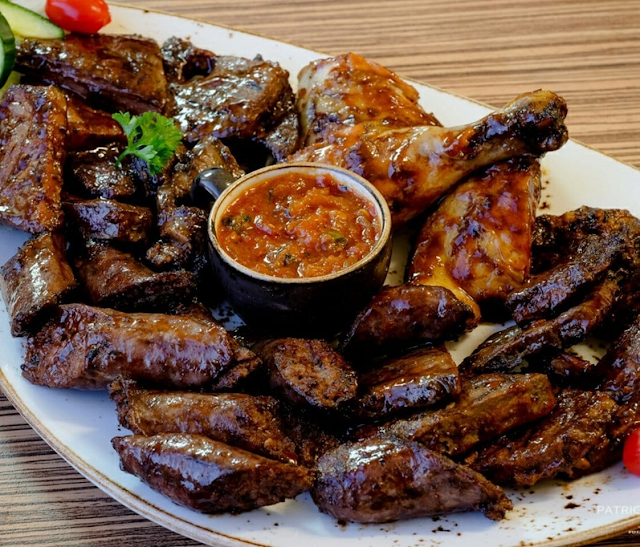Introduction:
Culinary journey through the vibrant tapestry of South African cuisine! In this blog post, embark on a flavorful exploration of the rich history and diverse flavors that define South African food experiences. From the aromatic spices of Cape Malay cuisine to the hearty comfort of traditional braai, every dish tells a story deeply rooted in the country's cultural heritage.
Discovering South African Food:
South African food is a melting pot of influences, reflecting centuries of migration, trade, and cultural exchange. Indigenous ingredients, European culinary techniques, and Asian spices blend together to create a unique gastronomic tapestry.
Exploring Indigenous Flavors:
At the heart of South African cuisine lies a reverence for indigenous ingredients and cooking methods. Staples like maize (corn), sorghum, and indigenous greens form the foundation of many dishes, showcasing the resourcefulness and ingenuity of South Africa's native communities.
The use of indigenous ingredients distinguishes South African food from other culinary traditions, infusing each dish with a sense of place and history.
Colonial Influences:
South Africa's colonial history has left an indelible mark on its cuisine. Dutch settlers introduced hearty stews and baked goods, while Indian laborers brought spices that transformed local dishes. British influence is evident in the tradition of afternoon tea and the popularity of dishes like bobotie, a fragrant meatloaf topped with custard.
A Fusion of Cultures:
As diverse as its people, South African cuisine is a celebration of cultural diversity. From the fiery curries of Durban's Indian community to the savory flavors of Cape Malay cooking, each dish reflects the unique heritage of its creators.
Braai Culture:
No exploration of South African food experiences would be complete without mentioning the beloved tradition of braai. Similar to a barbecue, braai involves grilling meat over an open flame, accompanied by side dishes like pap (maize porridge) and chakalaka (a spicy relish). More than just a way of cooking, braai is a social ritual that brings communities together around the fire.
Conclusion:
In conclusion, South African food is a celebration of history, culture, and community. By embracing diverse ingredients and culinary traditions, it offers a taste of the nation's rich heritage. Whether enjoying a hearty potjie stew or indulging in a sweet koeksister, every bite tells a story that spans generations. So, next time you sit down to a meal of authentic South African cuisine, savor not just the flavors, but the history and heritage that make it truly special.

Comments
Post a Comment